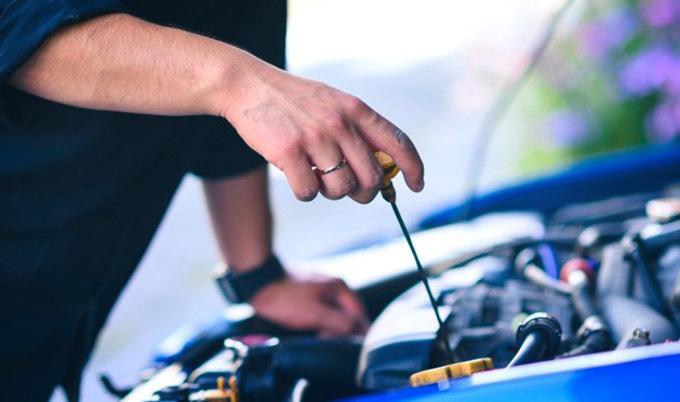Keeping a vehicle in top condition requires consistent care, attention to detail, and the right professional support. Regular maintenance not only ensures safety on the road but also helps drivers save money on costly repairs in the long run. Whether you are a seasoned driver or someone who just purchased your first car, understanding proper maintenance practices is essential. If you are looking for trusted services, Signal Garage is a great example of where professional care can make all the difference in extending the life of your vehicle.
Why Car Maintenance Matters
Many drivers overlook basic car maintenance until a breakdown occurs. However, routine checks and services help prevent small issues from becoming major problems. A well-maintained car:
Performs better and runs smoothly
Reduces the risk of accidents caused by faulty parts
Increases fuel efficiency
Holds higher resale value
Lasts longer without the need for major repairs
The peace of mind that comes with knowing your car is reliable is worth the effort of regular care.
1. Regular Oil Changes
Engine oil is the lifeblood of your car. It lubricates moving parts, reduces friction, and prevents overheating. Most experts recommend an oil change every 3,000–5,000 miles, depending on your vehicle and driving habits. Neglecting oil changes can lead to engine damage, reduced performance, and expensive repairs.
Tips for Oil Maintenance:
Always check oil levels monthly.
Use the type of oil recommended by your manufacturer.
Replace the oil filter with every oil change.
2. Checking Tire Health
Your tires are the only point of contact between your vehicle and the road. Properly maintained tires improve fuel economy, handling, and overall safety.
Tire Maintenance Checklist:
Tire Pressure: Check monthly and keep them at the recommended PSI.
Tread Depth: Replace tires when the tread is too worn (below 2/32 of an inch).
Rotation: Rotate tires every 5,000–8,000 miles to ensure even wear.
Alignment & Balancing: Misaligned tires can cause uneven wear and steering problems.
3. Brake System Checks
The brake system is one of the most critical components of vehicle safety. Worn brake pads, low brake fluid, or damaged rotors can reduce stopping power and increase the risk of accidents.
Signs Your Brakes Need Attention:
Squeaking or grinding noises
Vibration when braking
Brake warning light on the dashboard
Longer stopping distances
Having your brakes inspected regularly can prevent dangerous situations and ensure your car stops when it should.
4. Battery and Electrical System
Car batteries typically last three to five years, but extreme weather, frequent short trips, and heavy use of electronics can shorten their lifespan.
Tips to Maintain Battery Health:
Check terminals for corrosion.
Ensure the battery is securely mounted.
Test the battery voltage during routine maintenance.
Turn off lights and electronics when the car is not running.
5. Fluid Levels and Replacements
Besides engine oil, several other fluids keep your car running smoothly:
Coolant prevents overheating.
Brake fluid ensures effective braking.
Transmission fluid helps gears shift properly.
Power steering fluid assists with easy steering.
Regularly checking and replacing these fluids reduces wear and prevents system failures.
6. Air Filters and Engine Performance
A clean air filter ensures that your engine receives the right amount of air for efficient combustion. Dirty filters reduce fuel economy, power, and overall performance. Most manufacturers recommend replacing the air filter every 12,000–15,000 miles.
7. Seasonal Car Care
Different weather conditions place unique demands on your car:
Winter: Use winter tires, check antifreeze, and ensure the heater works.
Summer: Monitor coolant levels, AC system, and tire pressure.
Rainy Seasons: Inspect windshield wipers, brakes, and tire tread depth.
8. Keeping Your Car Clean
A clean car is more than just visually appealing—it prevents rust, paint damage, and corrosion. Washing the exterior removes harmful dirt, while vacuuming the interior keeps your cabin fresh and allergen-free. Don’t forget to wax the paint for added protection.
9. Following the Manufacturer’s Maintenance Schedule
Every vehicle comes with a recommended maintenance schedule found in the owner’s manual. Following this guide helps keep your warranty valid and ensures all parts are serviced at the right intervals.
10. Professional Inspections
While DIY checks are helpful, a certified mechanic can detect issues that are not always visible. Professional inspections include advanced diagnostic testing, alignment checks, and safety inspections that keep your car in peak condition.
Final Thoughts
Car maintenance is not something to put off—it’s an investment in safety, reliability, and long-term savings. If you ever need to move your vehicle safely between cities or across states, services like https://www.shiply.com/us/car-shipping/michigan-car-shipping can simplify the process with affordable and reliable car shipping options. Simple actions like oil changes, tire checks, and brake inspections make a world of difference in keeping your vehicle running smoothly. For those who want expert care, trusted professionals like signalgarage.com are always available to provide reliable services and ensure your car stays on the road for years to come.

